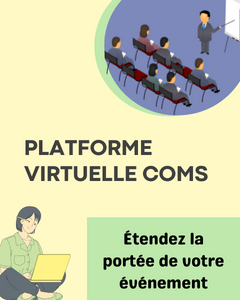Conférences > Sciences biologiques > Biologie des systèmes > Canada
Sélecionner un pays
1
A Roadmap towards Developing Mechanobiochemical Models for Single and Collective Cell Migration through Complex Non-Isotropic Environments
10 mai 2026 - 15 mai 2026 • Banff, Alberta, Canada
Identifiant de l'évènement:
1668613
2
ICMNS 2026 — International Conference on Mathematical Neuroscience
02 jui 2026 - 05 jui 2026 • McGill University – Montréal, Canada
Identifiant de l'évènement:
1687441
3
Nonlocal Aggregation Models in the Life Sciences
23 aou 2026 - 28 aou 2026 • Banff, Alberta, Canada
Identifiant de l'évènement:
1668772
Conference-Service.com met à la disposition de ses visiteurs des listes de conférences et réunions dans le domaine scientifique. Ces listes sont publiées pour le bénéfice des personnes qui cherchent une conférence, mais aussi, bien sûr, pour celui des organisateurs. Noter que, malgré tout le soin que nous apportons à la vérification des données entrées dans nos listes, nous ne pouvons accepter de responsabilité en ce qui concerne leur exactitude ou étendue. Pensez donc à vérifier les informations présentées avec les organisateurs de la conférence ou de la réunion avant de vous engager à y participer!
Dernière mise à jour: 11 décembre 2025




